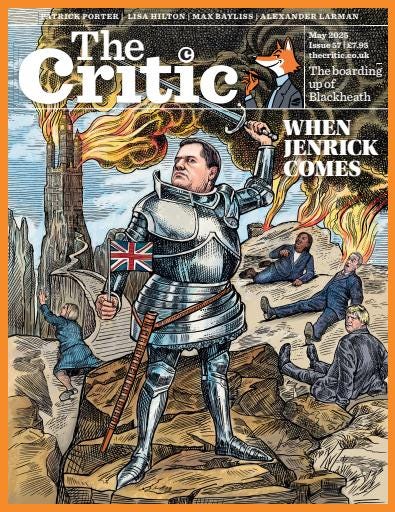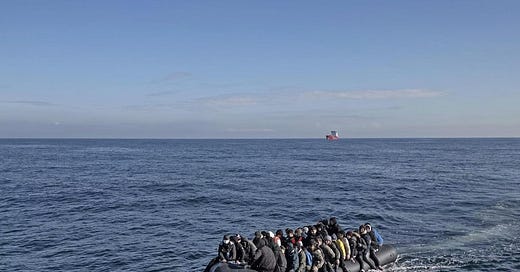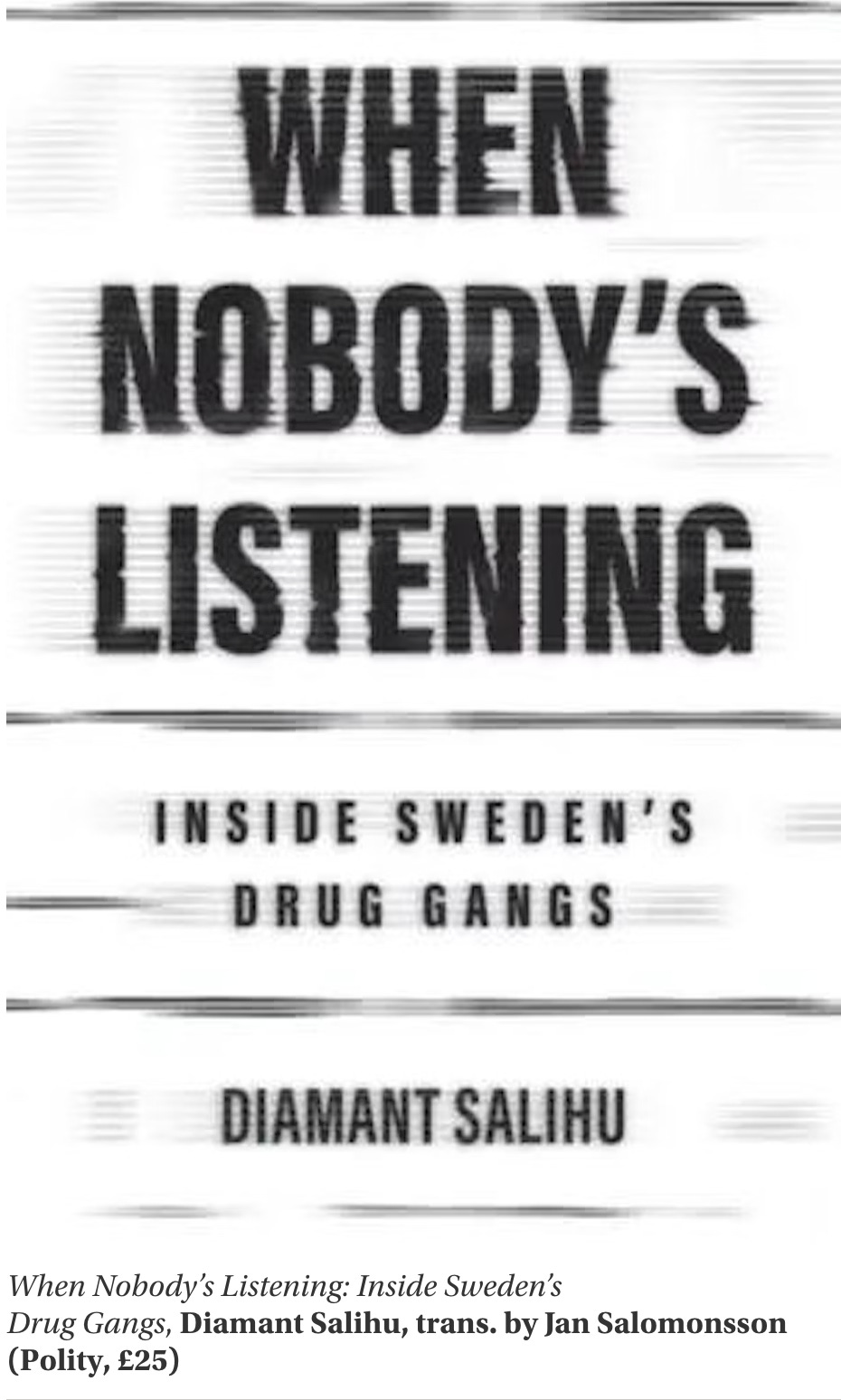
I review not one but two books in this month’s print edition of The Critic Magazine. Both books claim to examine the impacts of mass migration upon Europe and yet both writers fail to answer the pivotal question; the question that actually matters ordinary people living amongst the rubble of our ‘multicultural’ societies: “How does Europe regain control?”
The first book comes from former Home Office Press Officer, Nicola Kelly. It is called, Anywhere But Here. The title inspired by graffiti Kelly sprayed on the wall inside a migrant camp in the north of France. For immigrants waiting to be smuggled across the English Channel, they claim they would rather be ‘anywhere but here’ in the make-shift waiting camps. For the recipients of these illegal migrants — rural communities up and down the United Kingdom — they want these unvetted individuals housed, ‘Anywhere but here’.
Kelly proposes her work will examine, ‘How Britain’s broken asylums system fails us all’ and yet she cannot help herself in her heartless ridicule of the working class.
She construes those who express fears about immigrants being “rapists” and “terrorists” as either hysterical or stupid, as if crime statistics from the Crown Prosecution Service do not do justice to widespread concerns. MI5 reported last year that 75 per of counter-terrorism efforts in the UK are focused on Islamist extremism. Given that 6.5 per cent of people living in Britain are Muslims, one could say that this demographic is a touch over-represented.
The casual criminality and antisocial behaviour demonstrated by new arrivals palpitates from in book. From bed-matts being stolen and hourly fights to legal documents and phones being dispensed into the English Channel, and women suffering rape and harassment. Kelly, however, has a superhuman ability turn a blind eye to this and find only those migrants who are dispossessed, talented and truly aspirational.
Her suicidal-empathy is endemic to Britain’s socialite establishment class; and their monopoly over the ‘tone window’ of the great migration debate only serves to ‘kick the can down the road’; and, in the meantime, more people are hurt, uprooted and impoverished.
Investigative journalist Diamant Salihu attempts to show what happens when the negative impacts of mass immigration are swept under the carpet in his latest book, When Nobody’s Listening.
Sweden, like Britain, has discovered that not all immigrants are grateful or benevolent. This polite, unassuming Scandinavian country has long been one of the safest nations not only in Europe but the entire world. Yet, over the last decade Sweden has slipped down the world rankings, registering lower for safety on the Global Peace Index than Oman, Qatar and Kuwait.
With more “shooting deaths” per capita than any other country in Europe, what is the reason behind Sweden’s plummeting levels of safety?
Islamic drug gangs.
Since 2015, Sweden has accepted almost a million legal migrants. A majority of these immigrants come from the Middle East and East Africa. They arrive as “refugees” from Syria, Iran, Iraq, Somalia, purportedly fleeing conflict. And yet, since 2015, Sweden has also experienced a mass influx of gang warfare.
This “ultra-violence” is fuelled by a flourishing drug economy which results in almost daily drive-by shootings and bombings on the streets of cities like Malmö, Stockholm and Gothenburg.
This week alone, three people were shot dead in a hair salon in Uppsala, and a mother and her five-year-old girl have been left in critical condition after a gang threw a grenade ‘through the wrong window’.
Bombings are also a regular occurrence in Sweden. In January 2025, there was a gang-related bombing every single day; and a high-profile anti-Islam activist — Iraqi and Islam-apostate, Salwan Momika — was murdered in Södertälje. At present, the only ‘peaceful’ country to experience more bomb and grenade attacks than Sweden is Mexico.
Think about that.
But is not only first and second generation immigrants involved in gang warfare.
Children as young as 12 — Swedish boys from disadvantaged neighbourhoods — are groomed by rival gangs via Signal chats to exact the blood feuds between drug “kings” who avoid prosecution by living in luxury in Spain, Turkey and Dubai.
Salihu examines how efforts by InterPol and Sweden’s law enforcement to crackdown on the multi-billion dollar drug trade are being thwarted by pen-pushers and policy-makers across Europe who are reluctant to name the issue and tackle the violence at its source.








